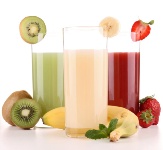 Your immune system has a big role to play in safeguarding your health—especially as you get older. But like everything else, your immune system may be slowed down and made less effective by the process of normal aging. If you’re looking for a way to offset this drop in immunity, follow the health advice of some U.K. researchers, and have a probiotic shake for breakfast.
Your immune system has a big role to play in safeguarding your health—especially as you get older. But like everything else, your immune system may be slowed down and made less effective by the process of normal aging. If you’re looking for a way to offset this drop in immunity, follow the health advice of some U.K. researchers, and have a probiotic shake for breakfast.
Probiotics are all the rage these days in health news for the help they can offer in ousting disease-causing bacteria from your body. These “bad” bacteria are being blamed for all kinds of health problems. But one thing that’s not usually addressed is whether probiotics could help offset what researchers call “immunosenescence.”
If you’ve never heard this term before, it refers to the slow but steady deterioration of your immune system that’s naturally triggered as you grow older. And although this sounds like a gentle process, it’s actually a major contributing factor in early mortality among seniors.
To see if probiotics could help boost immune function in seniors, researchers from the University of Reading recruited 30 healthy senior volunteers. The volunteers were given a probiotic drink containing different kinds of beneficial bacteria or skimmed milk as a supplement for four weeks. The participants then stopped treatment for four weeks, after which they switched groups.
The researchers found that probiotic consumption was associated with a significant increase in natural killer (NK) cell activity. These are the cells that can target and destroy cancer cells or virus-infected cells. Additionally, the probiotics triggered an increase in IL-10—an important regulator of inflammation.
Add this healing food to your breakfast tomorrow morning to get all the immune-boosting benefits it has to offer.
Read more on the health benefits of probiotics.
Sources for Today’s Articles:
A Special Drink That Boosts Seniors’ Immunity
Dong, H., et al., “Immunomodulatory effects of a probiotic drink containing Lactobacillus casei Shirota in healthy older volunteers,” Eur J Nutr. January 10, 2013.
